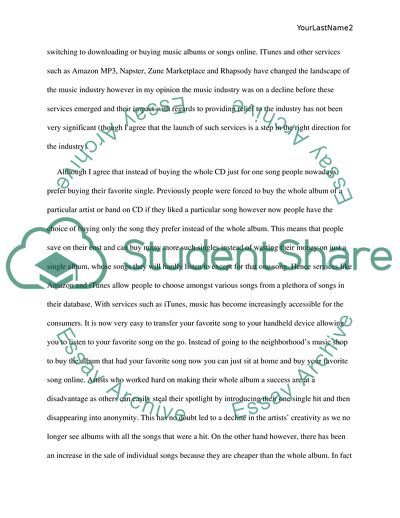Cite this document
(How Is the Music Industry Being Affected by iTunes Coursework, n.d.)
How Is the Music Industry Being Affected by iTunes Coursework. https://studentshare.org/music/1760233-how-is-the-music-industry-being-affected-by-itunes-and-other-services-that-allow-customers-to-buy-individual-songs-as-opposed-to-entire-albums
How Is the Music Industry Being Affected by iTunes Coursework. https://studentshare.org/music/1760233-how-is-the-music-industry-being-affected-by-itunes-and-other-services-that-allow-customers-to-buy-individual-songs-as-opposed-to-entire-albums
(How Is the Music Industry Being Affected by ITunes Coursework)
How Is the Music Industry Being Affected by ITunes Coursework. https://studentshare.org/music/1760233-how-is-the-music-industry-being-affected-by-itunes-and-other-services-that-allow-customers-to-buy-individual-songs-as-opposed-to-entire-albums.
How Is the Music Industry Being Affected by ITunes Coursework. https://studentshare.org/music/1760233-how-is-the-music-industry-being-affected-by-itunes-and-other-services-that-allow-customers-to-buy-individual-songs-as-opposed-to-entire-albums.
“How Is the Music Industry Being Affected by ITunes Coursework”. https://studentshare.org/music/1760233-how-is-the-music-industry-being-affected-by-itunes-and-other-services-that-allow-customers-to-buy-individual-songs-as-opposed-to-entire-albums.


